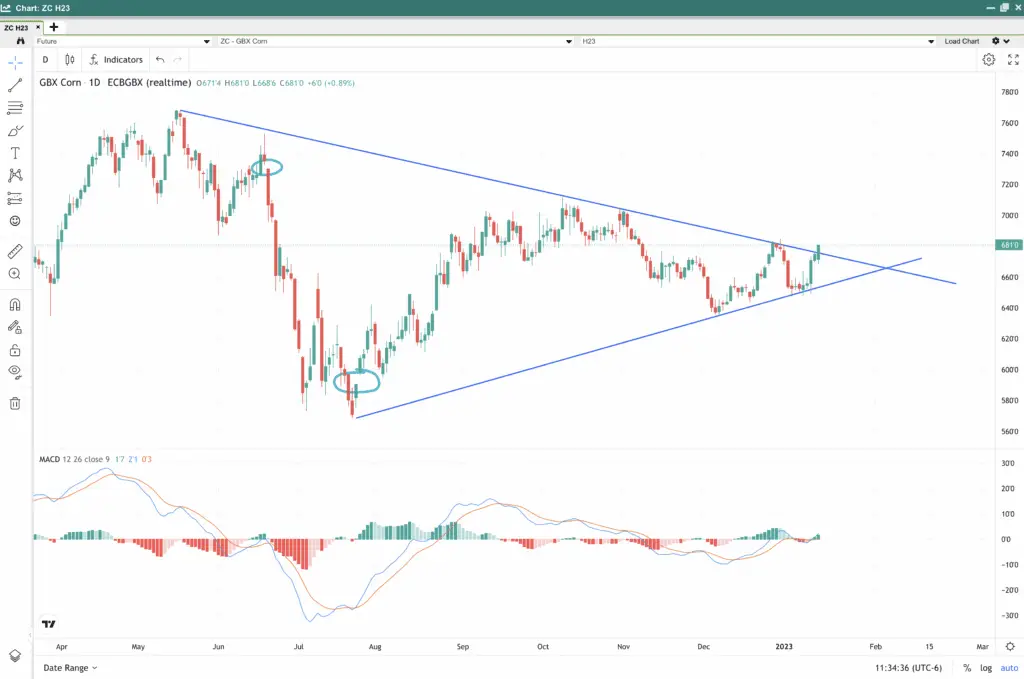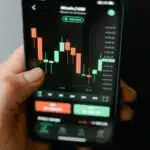Which trading option is right for you?
You want to find the trading company that best fits your needs. We’ll walk you through where each one shines in the futures trading world.
Interactive Brokers, TradeStation, and Paradigm Futures are all in the commodity futures and options world. Futures and options are commonly used to offset a price risk to a specific market.
| Interactive Brokers | TradeStation | Paradigm Futures | |
| Rate | ✅✅✅ | ✅✅ | ✅✅ |
| Accessibility | ✅✅✅ | ✅✅✅ | ✅✅✅ |
| Information | ✅ | ✅ | ✅✅✅ |
| Equity Security | ✅✅ | ✅✅ | ✅✅✅ |
| Total | 9 | 8 | 11 |

What is a futures contract?
A futures contract is a legally binding contract with a specific set of quantities and a specific time associated with the contract. Futures are also facilitated through a futures exchange. Futures contracts are standardized, which allows hedgers and speculators to efficiently transfer ownership to another party.
Why would someone want to transfer ownership of a commodity to another party?
Transferring ownership using the futures markets lets commodity producers, end users, and storage facilities mitigate their exposure to adverse price movements.
Take, for example, a corn farmer. The farmer plans to grow corn and harvest the corn in October. To grow the corn, the farmer must purchase their inputs (seed, fertilizer, etc.) in the winter and spring before planting the crop. The farmer accumulates the expenses before they can harvest and sell their produce. To take advantage of the seasonal strength of the market in the spring and summer before the crop is harvested, the farmer can use a futures contract, like softs futures, to sell the December contract for a price that they feel is reasonable for their farm. By shorting the futures (selling), the farmer has transferred their risk to the buyer of the corn contract.
Futures Market Speculators
You can also trade a futures contract to speculate in a market you feel is undervalued or overvalued. This is what speculators do — and they play an essential role in the futures markets.
Speculators do not have a physical position in a market that they are trading. They seek out opportunities in the price direction of a particular market, and they provide liquidity in markets, which helps hedgers. For every buyer, there has to be a seller, and vice versa.
Which Trading Company is Right for You?
Let’s discuss some of the players that facilitate the trades for hedgers and speculators — specifically Interactive Brokers, TradeStation, and Paradigm Futures — and what pros and cons each has.
- Rates
- Accessibility
- Information
- Security of Equity

Rates
Like many things in life, you get what you pay for — and you should always read the fine print.
Some players in the futures industry offer a deep discount on their rates, but that comes with a low touch and low insight and advice on your accounts. Others have a higher rate but offer a better user experience with a broker-assisted program.
Deciding on what company to choose for futures and options trading is similar to deciding on what law firm you select. Lower rates are often attractive but not always the most conducive for business.
Interactive Brokers Rates
Let’s start with Interactive Brokers. They promote a “starting at $0.00 commission” structure. This can be an excellent way to attract business initially, but you will want to read the fine print and notice desk fees, risk fees, and other fees that add cost to trading.
TradeStation Rates
TradeStation’s commissions model is similar to Interactive Brokers.
TradeStation also deeply discounts their rates with low broker assistance, promoting a $0 commission rate, but after hours trading can come with an added fee. If it’s after hours, that will sometimes require a series 3 licensed broker. This can make the fee structure complicated.
Paradigm Futures Rates
Paradigm Futures has a standard $65 per round-turn charge with futures and options.
One thing that sets Paradigm Futures apart from Interactive Brokers and TradeStation is the vested interest that they have for the clients. Paradigm Futures has brokers on staff that help each trader, no matter the account size.
For self-directed accounts and accounts that make a considerable volume of trades, Paradigm Futures can also get competitive on rates.

Accessibility
Paradigm Futures, Interactive Brokers, and TradeStation can all access the markets from your phone. As long as you have internet service, you can place trades from your phone or computer anywhere in the world,at any time.
With Paradigm Futures, you have 24-hour access to phones in a trade. While you are calling from 7:30 am to 7:00 pm central standard time, there won’t be an added charge. Outside of that, there is a $3.00/ filled contract night desk fee.
Interactive Brokers and TradeStation have similar structures.

Information
With Paradigm Futures, you can access RJ O’Brien’s market insights in your online portal. RJ O’Brien is the oldest and largest private futures commission merchant (FCM) in the U.S.
With RJO’s network, you can get top-notch, fundamental data with their extensive boots-on-the-ground network. RJO offers technical strategies that help facilitate hedges, and help speculators that use charts for their trading programs.
Paradigm Futures uses computer programming to pull the data from government reports and create charts the moment the data is released. Users can look at the information in easy-to-read charts instead of having to read the reports. (You can find these charts on the individual market pages in the “data visualizations” tab of our site.)
Interactive Brokers and TradeStation have models that do not integrate a commodity broker. While this can help keep the costs lower, they lose the boots-on-the-ground function of their information.
When it comes to trading commodity markets, physical markets can be used to build out your trading narrative — so it’s vital to understand what the physical market is doing.
Equity Security
When you are an investor looking to park hundreds (if not millions) of dollars at a firm to trade with, you want to have confidence in the company who’s helping you trade. You need to know that in times of uncertainty, the company isn’t going to go under or come into a time when the stockholder’s confidence breaks and the stock price falls through the floorboards.
Take MF Global, for example. MF Global was a powerhouse in this space back in the early 2000s.
Two things that hurt MF Global were that:
- they were trading their speculative positions, and
- they were a publicly traded company.
MF Global’s positions were put on, and once there were rumors that the positions were significantly straining the company, the shareholders started dumping their stock. This drove down the stock price and eventually bankrupted the company. Accounts ended up on the wrong side of the deal and cost them millions.
In light of the recent blowup of FTX and other companies that act as an exchange and trading firm for market participants, it’s essential to remember that a little bit of savings on rates can be washed away overnight.
With many newer companies have come into the market trading space as disruptors, but it’s important to ask yourself if you trust where you’re putting your equity.
Paradigm Futures using RJ O’Brien as their FCM, so you know your equity is at a long-standing company that has stood since 1914. There is no crisis this company hasn’t gone through: The Great Depression, 1970s hyperinflation, 1980s high-interest rate environment, Y2K, September 11th, the 2008 financial crisis, 2020 COVID-19 lockdowns, and the 2022 crypto blowout.
Which Trading Brokerage is Right for You?
In comparing Interactive Brokers, TradeStation, and Paradigm Futures, we believe Paradigm Futures is the best option with the incredible support they provide. While Interactive Brokers & TradeStation may offer lower fees for low-volume traders, their platforms carry significant risks.
Ready to talk to an experienced trading brokerage about investing in commodities and futures? Open an account today.









